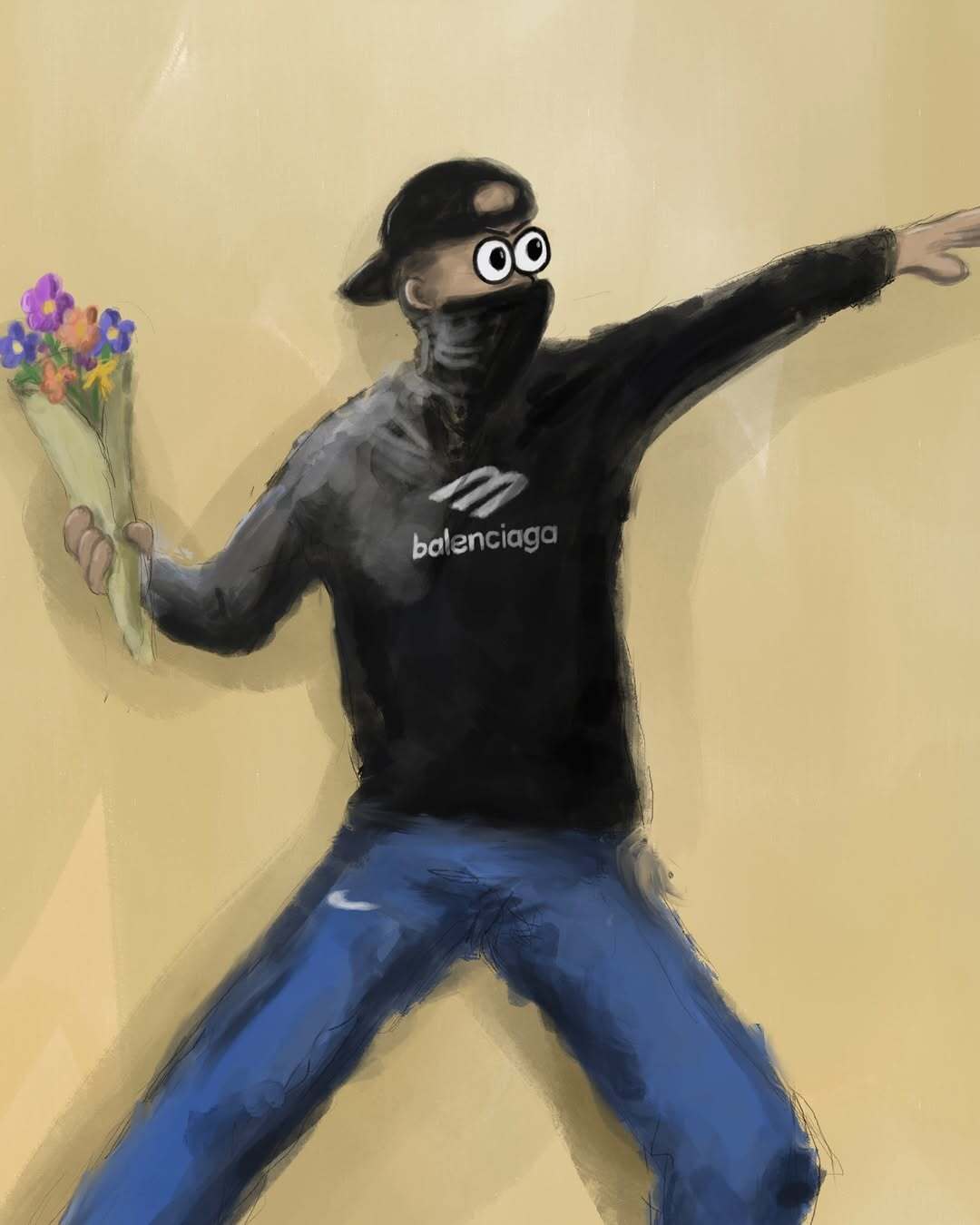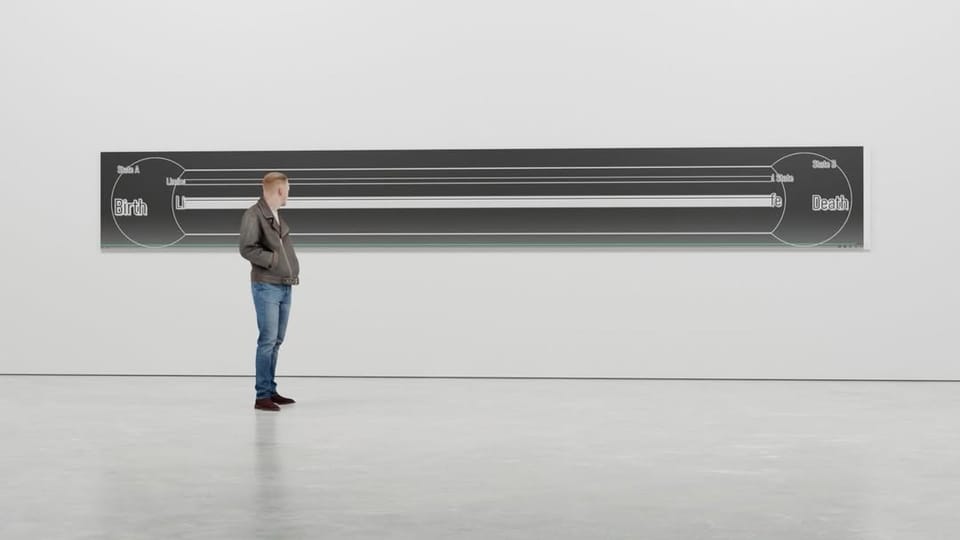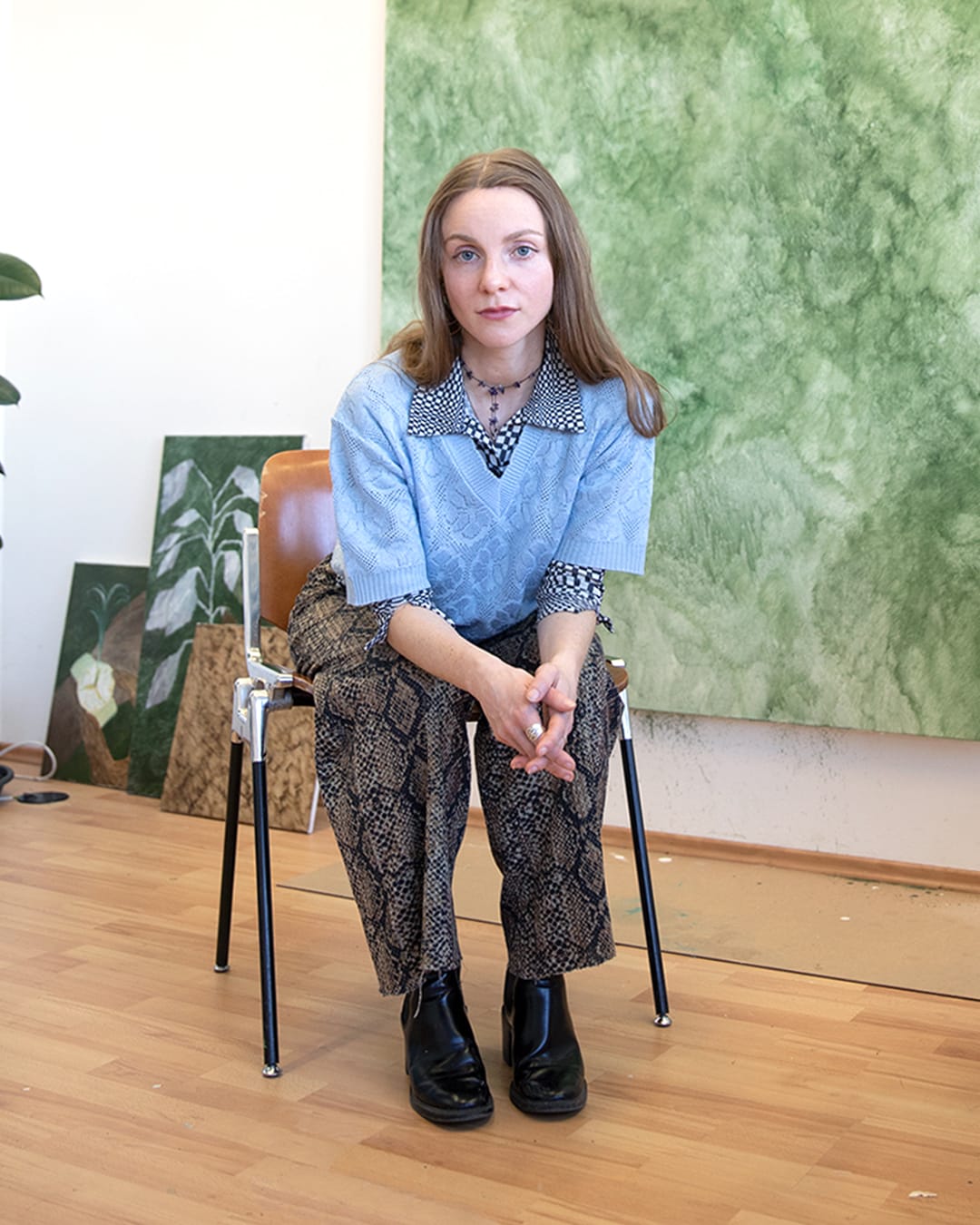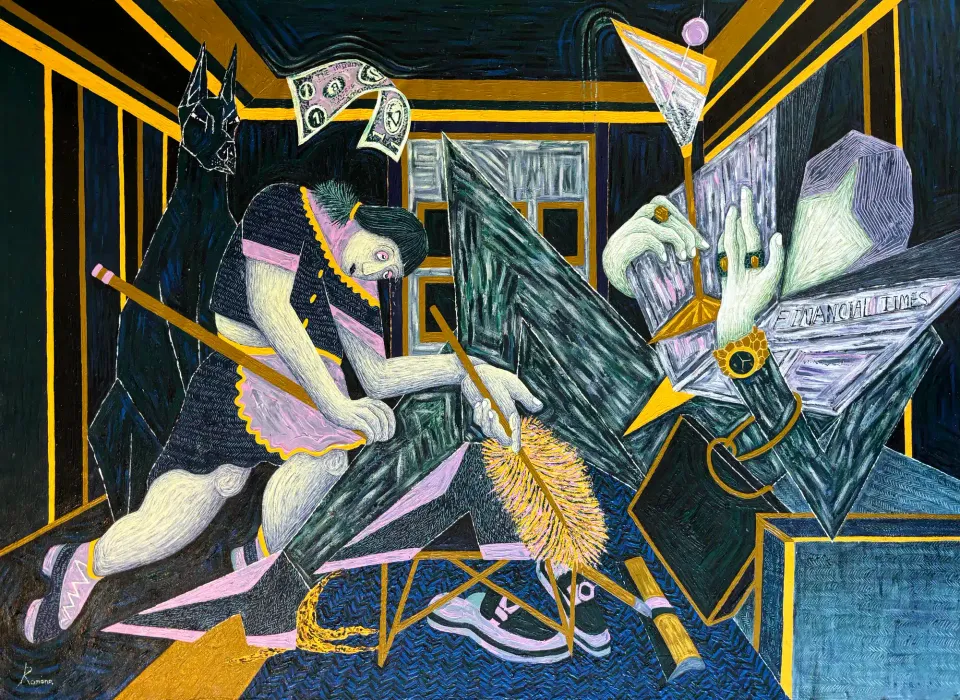Selver Yildirim : An Interview with an promising Artist
Selver Yildirim contemporary artist portrait and interview focused on her residency in the beautiful landscape of Cappadocia, Turkey
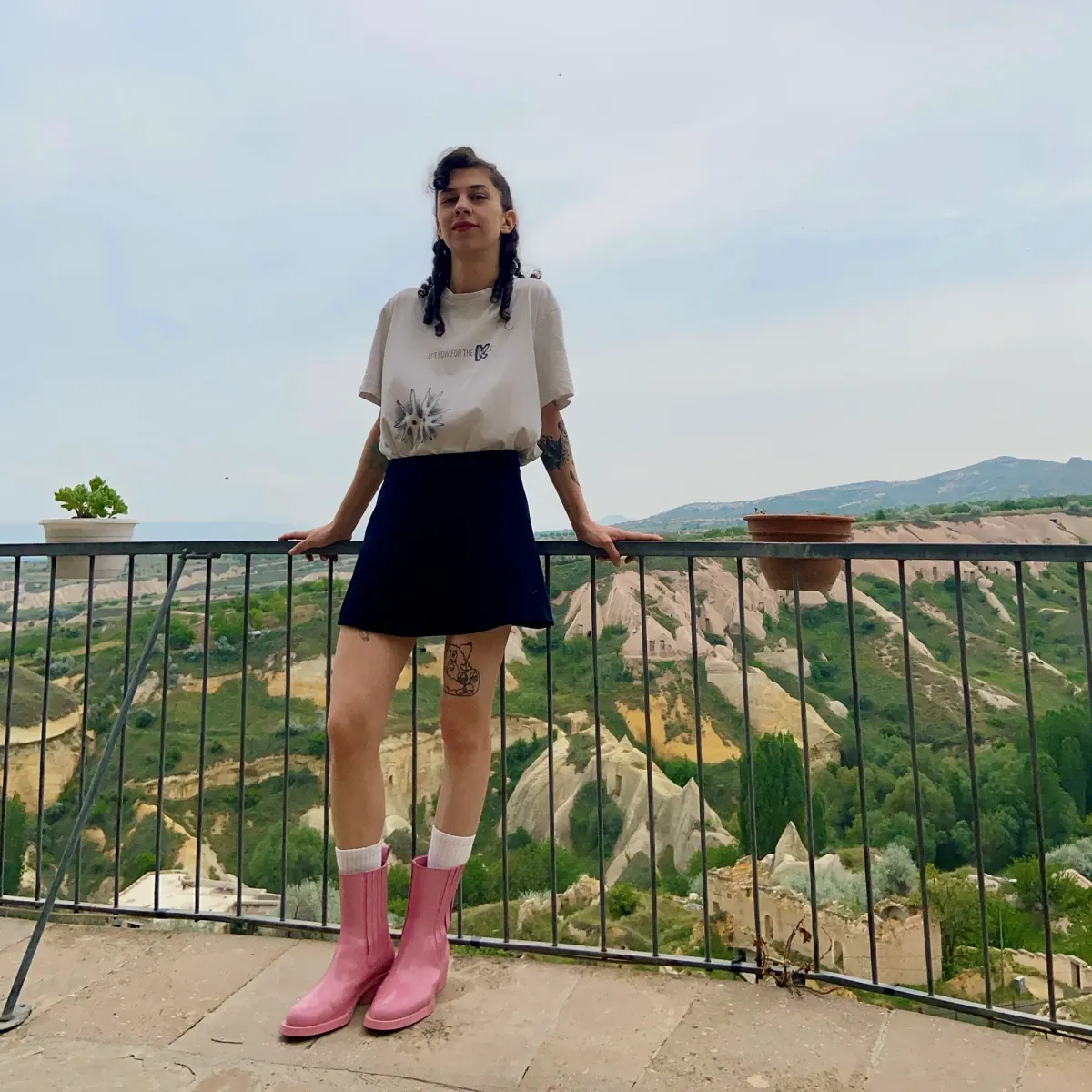
Interview with the emerging artist Selver Yıldırım
Introduction
Selver Yıldırım is a promising emerging contemporary artist from Turkey.
She was born in 1993, is an accomplished artist who completed her undergraduate education at Yıldız Technical University in the Combined Arts Program.
I am a Sisyphus who pushes the rock with a smile.
Selver Yildirim
Since 2013, she has participated in numerous art projects, group, and solo exhibitions.
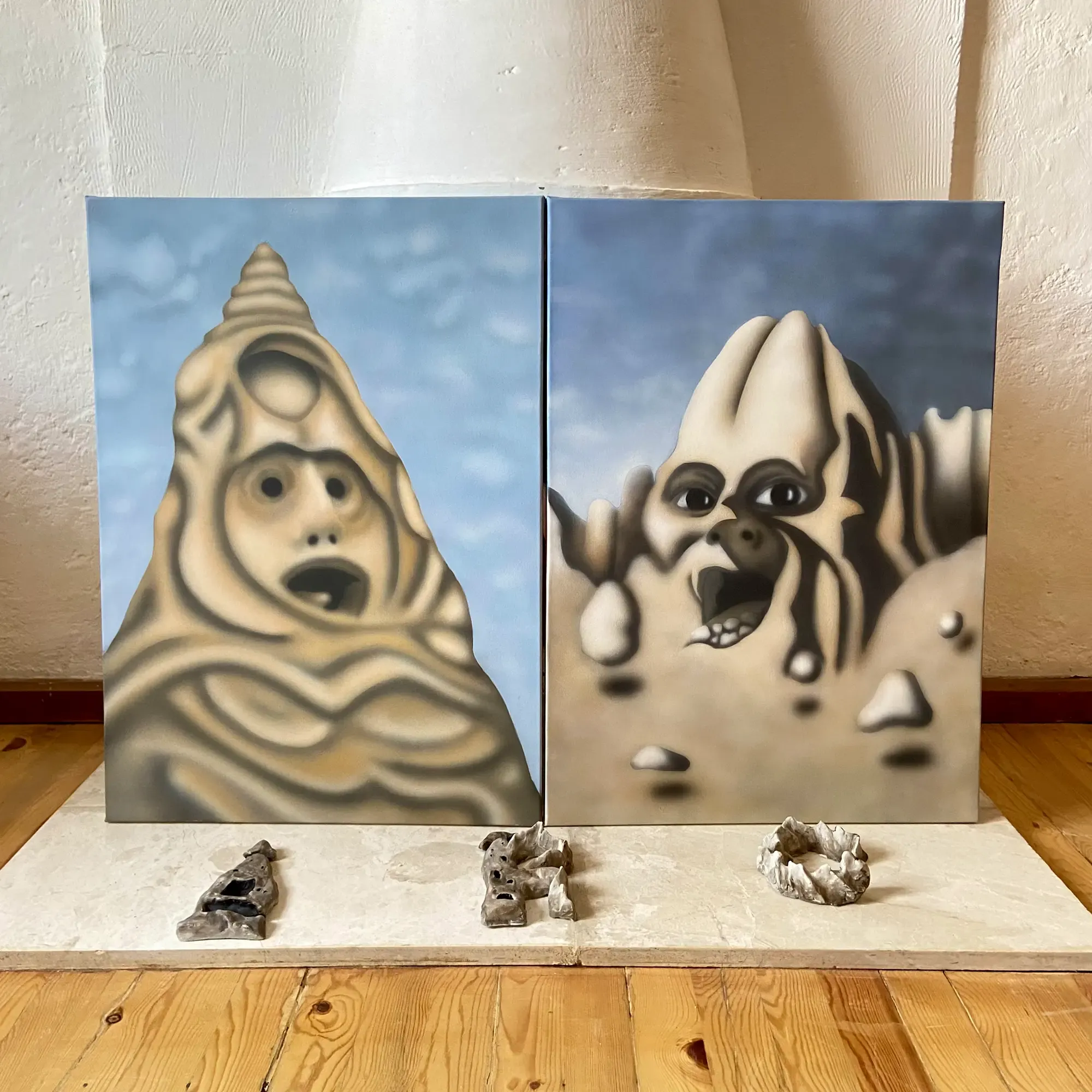
Yıldırım's work spans 3D modeling, digital painting, assemblage, and plastic art.
Her unique approach involves creating surreal spaces using light cracks, blurred lines, shadows, and overlapping layers. Her works often explore apocalyptic themes, presented with a playful and ironic twist.
We asked Selver Yıldırım a few questions about her art, recent developments, and her residency in Cappadocia, Turkey.
Can you talk about your early inspirations and how you turned towards a career in art?
I was lucky in terms of my career because my mother was more of an observer and guide rather than an interventionist.
As a Marxist teacher, she was experienced in recognizing and nurturing a child's talent.
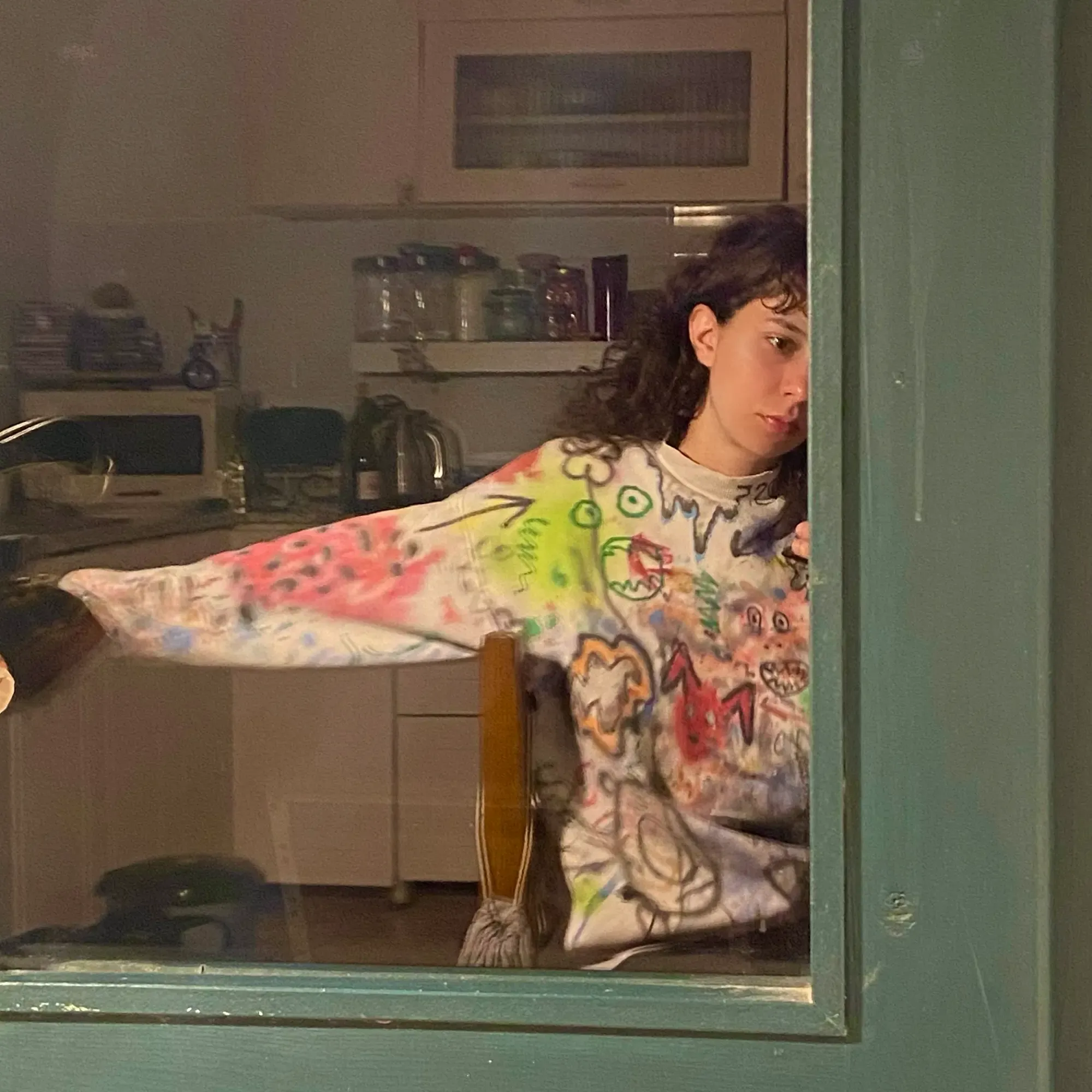
She always encouraged me toward art and design, ensured I participated in art competitions, and supported my interests.
Most artists draw inspiration from their childhood.
When I think of my earliest inspirations, spending my years from 0-6 in Cappadocia Ürgüp, a surreal town with fairy chimneys, giant balloons flying in the sky, mud pottery, carpets, and venomous scorpions, is quite significant for my art.
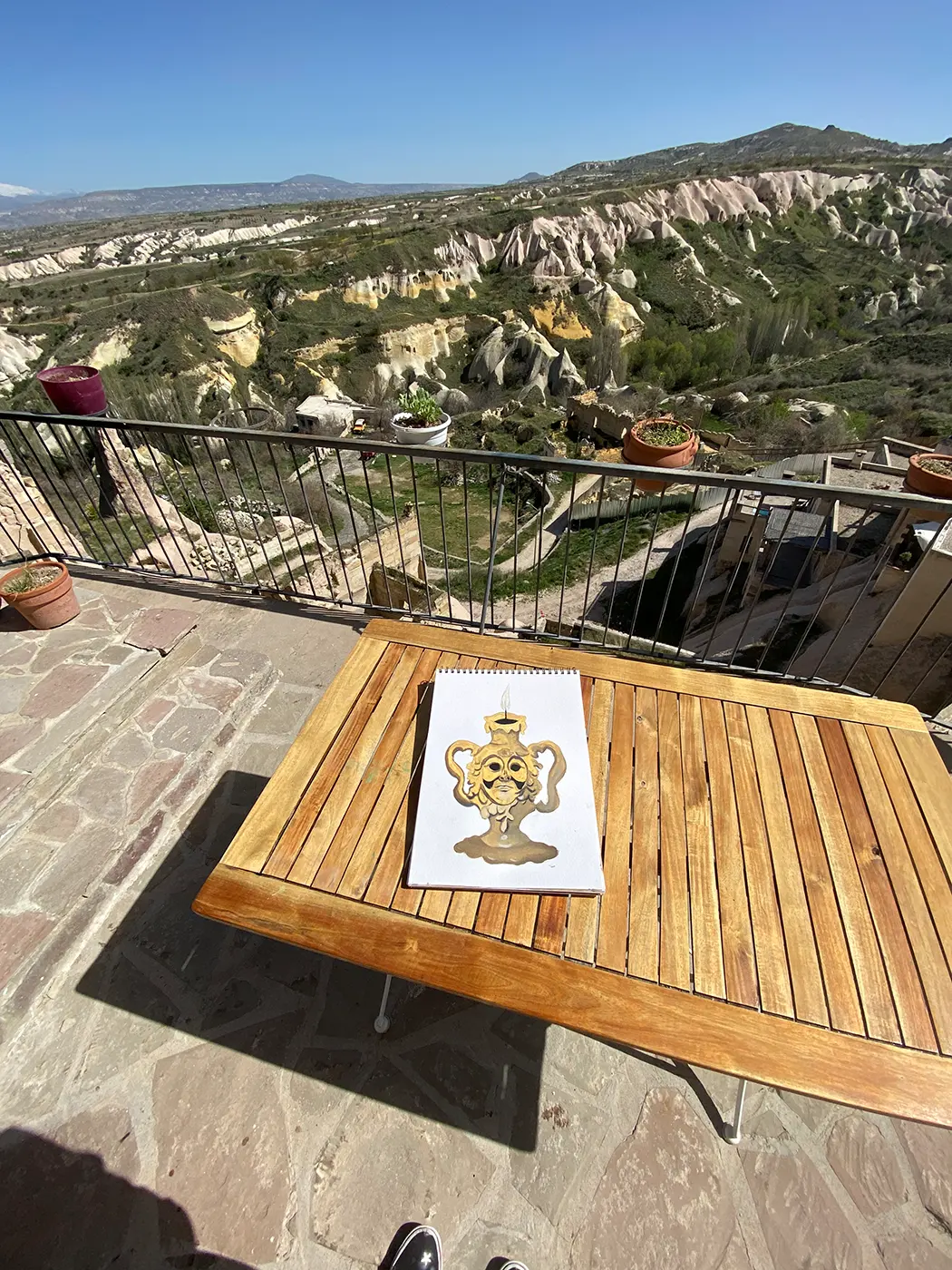
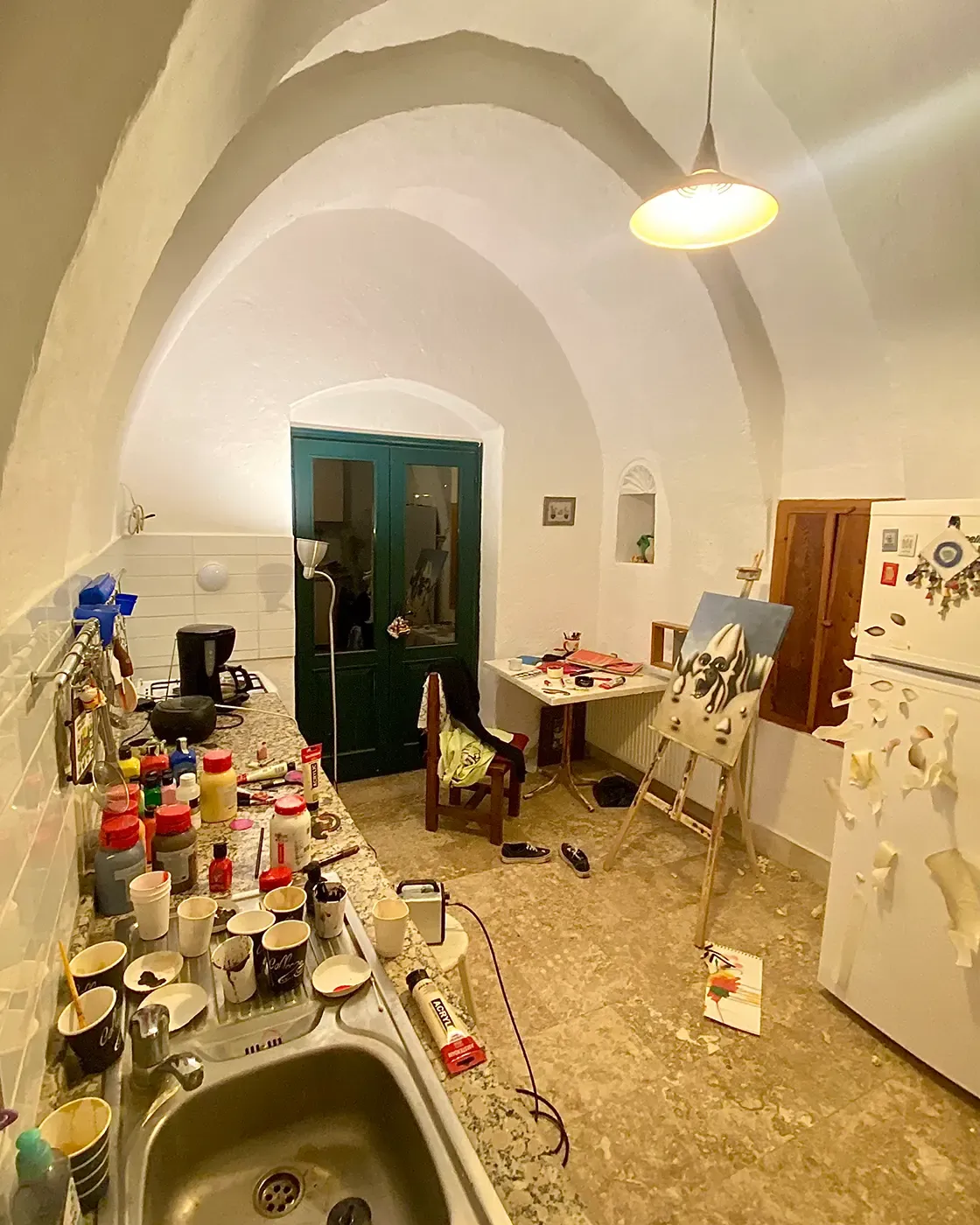
Selver Yıldırım on location during her Artist Residency in Cappadocia 2024. The images showcase the breathtaking landscape of Cappadocia and her creative workspace, capturing the essence of her artistic journey in this unique environment. | Photo Image Courtesy by the Artist
My amorphous forms indeed resemble Cappadocia. Moving immediately afterward to Kocaeli, a gray industrial city covered with factories and concrete, also influenced my aesthetics and perception of landscapes.
How did your education at Yıldız Technical University shape your artistic style and approach?
I entered the Department of Combined Arts as the fourth-ranked student.
It was a fantastic department encompassing all arts with courses in painting, sculpture, graphics, ceramics, cinema, dance, and music, making it perfect for me.
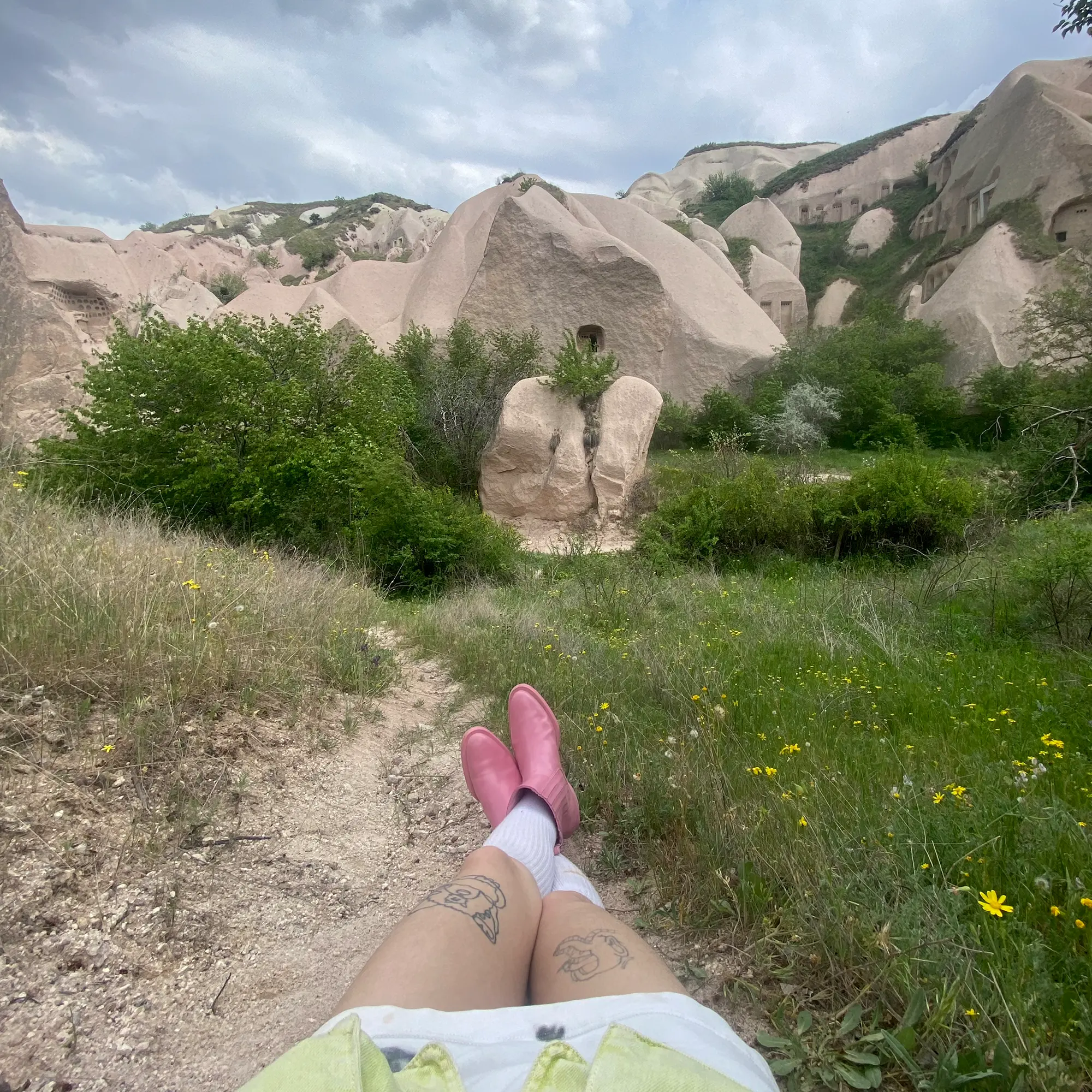
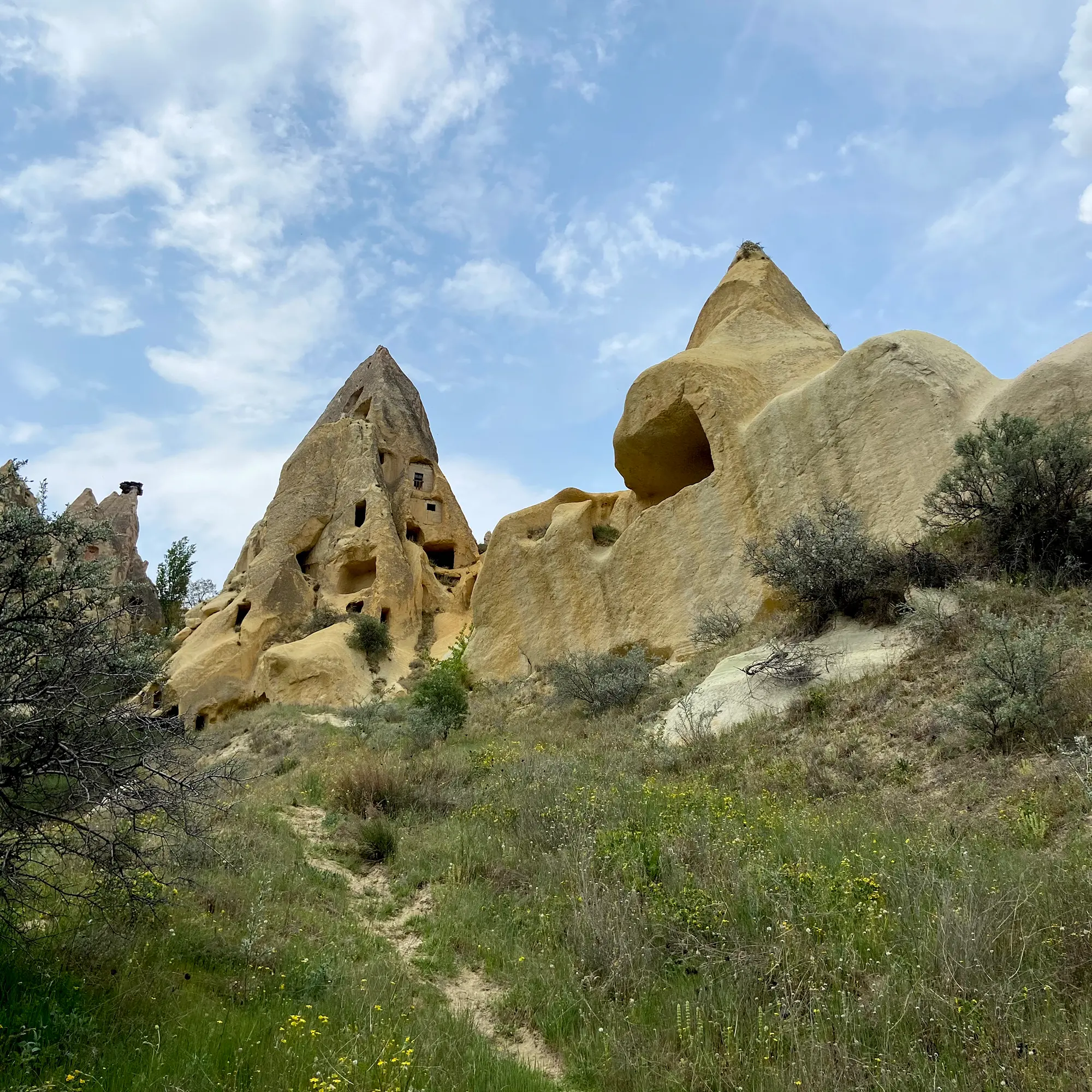
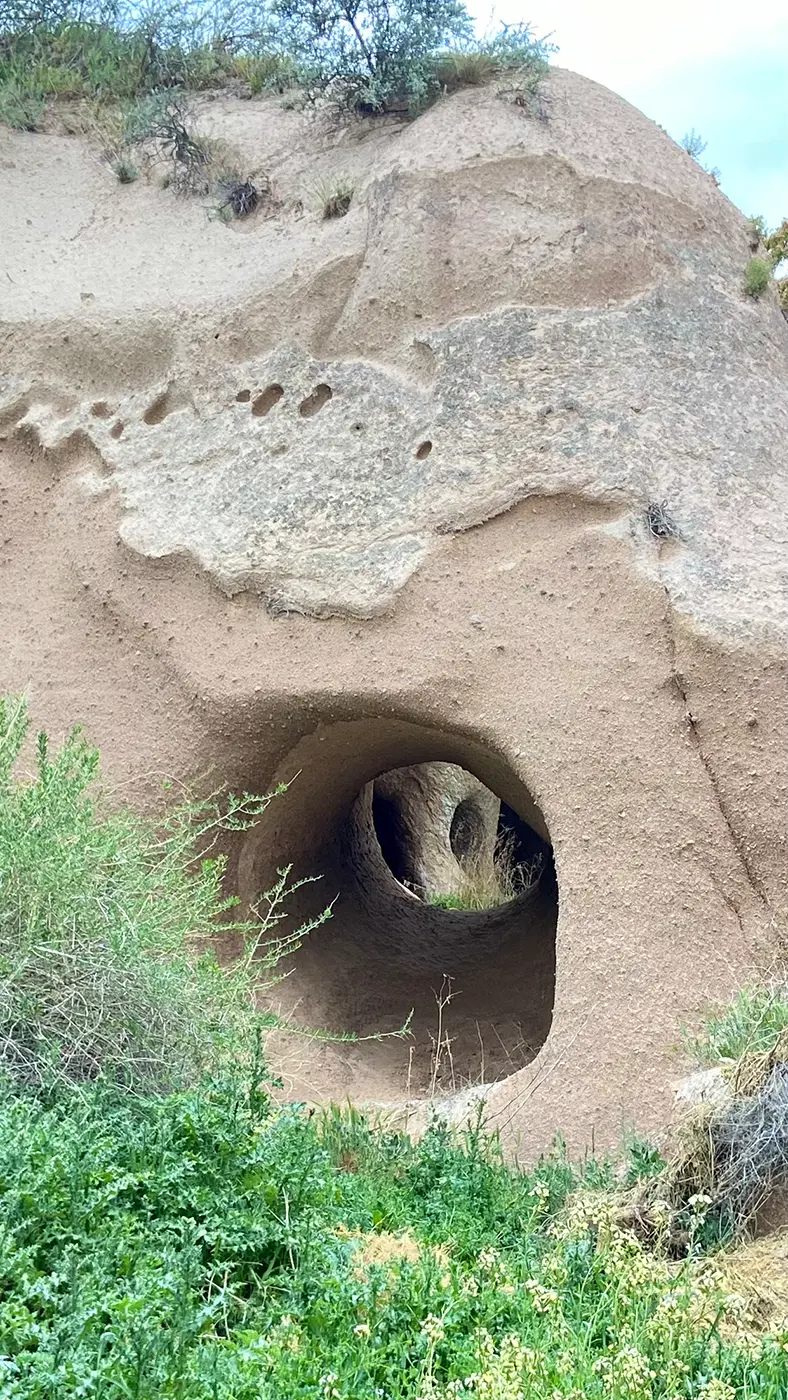
Selver Yıldırım: Impressions from Her Artist Residency in Cappadocia, Turkey. The stunning landscapes perfectly complement and inspire her unique artistic practice and historical themes.
Although my first years were very enlightening and developmental, the ever-changing political periods in Turkey every three years unfortunately affected me negatively, just like most students.
From 2013 onwards, the quality of universities and teachers rapidly declined. Moreover, this process is still ongoing.
This situation distanced me from school and made me disillusioned with academia. This has always bothered me.
Your works often include digital images. Can you share your creative process with us?
I think of the start of my creative process as "playing all the instruments." First, I create a polyphonic and abstract problem on the canvas with forms and colors I choose entirely instinctively.
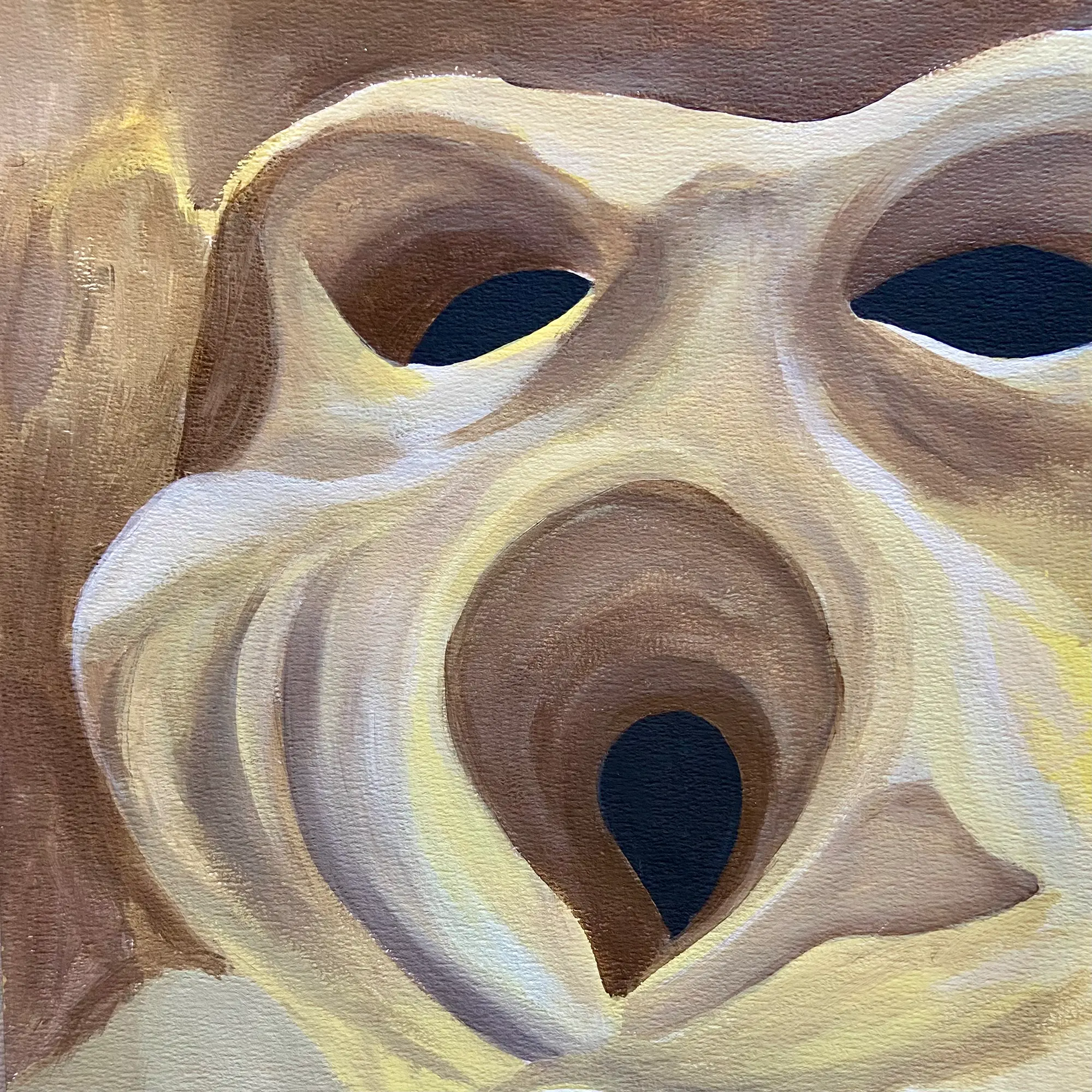
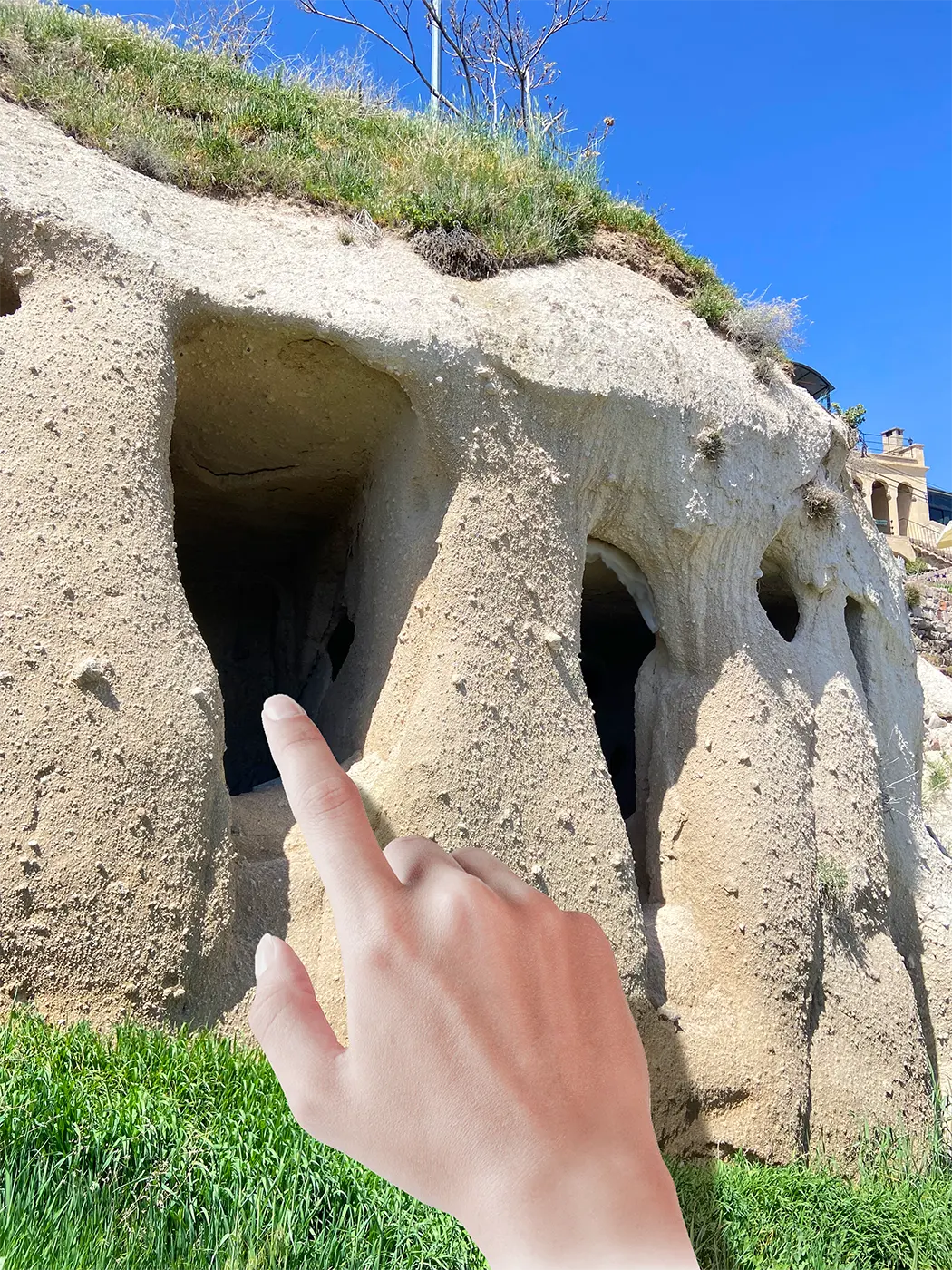
Selver Yıldırım: Artistic Inspiration in Cappadocia. Her painting captures the essence of Cappadocia's ancient cave dwellings, blending natural forms with artistic interpretation. The left side shows a close-up of Selver Yıldırım's painting, which depicts abstract, cave-like forms with smooth, flowing lines and deep, dark openings. The right side features a photograph of actual cave dwellings in Cappadocia, with a hand pointing towards the cave entrances, highlighting the connection between the natural landscape and her artwork. | Photos Courtesy by the Artist
Then the whole process is spent solving this problem, that is, arranging all the instruments in a melodic and rhythmic order, refining or amplifying the sounds, and finally creating a song, a story.
I love tinkering with computer programs and learning new ones. This directly affects my perception of painting.
I’ve been online since I was 7 years old. I still collect visuals on my computer like an old lady and actively run a meme account.

Instagram Account 0 by Selver Yildirim
Although I spent a long time creating abstract and spiritual paintings during my 11-year painting career, when I started to move towards figurative art, my works began to resemble those I designed digitally.
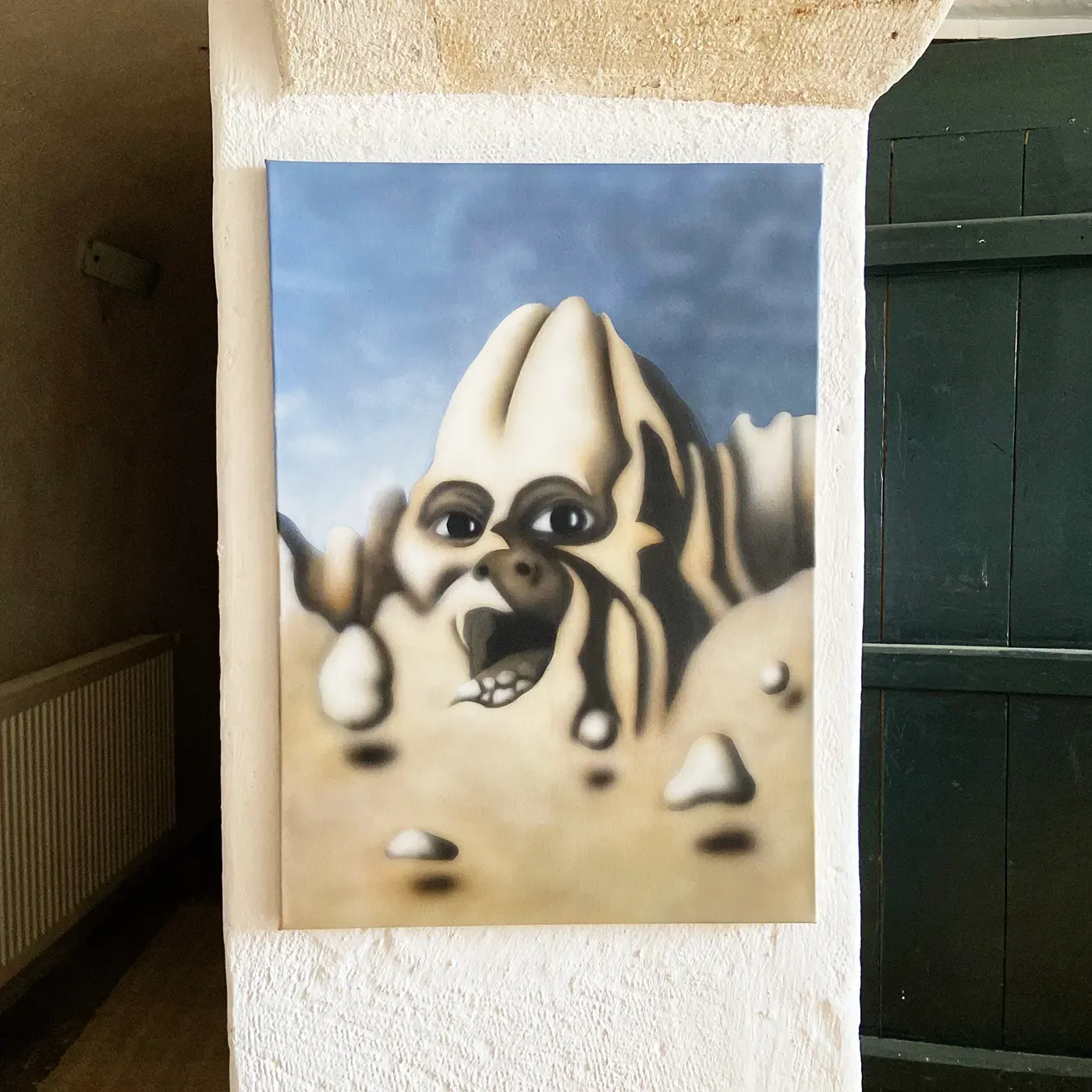
I regurgitate the images I see and consume. After all, the number of emojis I see in a day exceeds the number of trees or fruits I see.
Light and shadow play an important role in your art. How do you use these elements to create new dimensions and surreal spaces?
A friend of mine jokes about me being "the master of dimensions" because there are usually multiple spaces in my paintings.
The painting is already there, standing in front of us, and I want the viewer to wander within the painting and embark on many adventures.
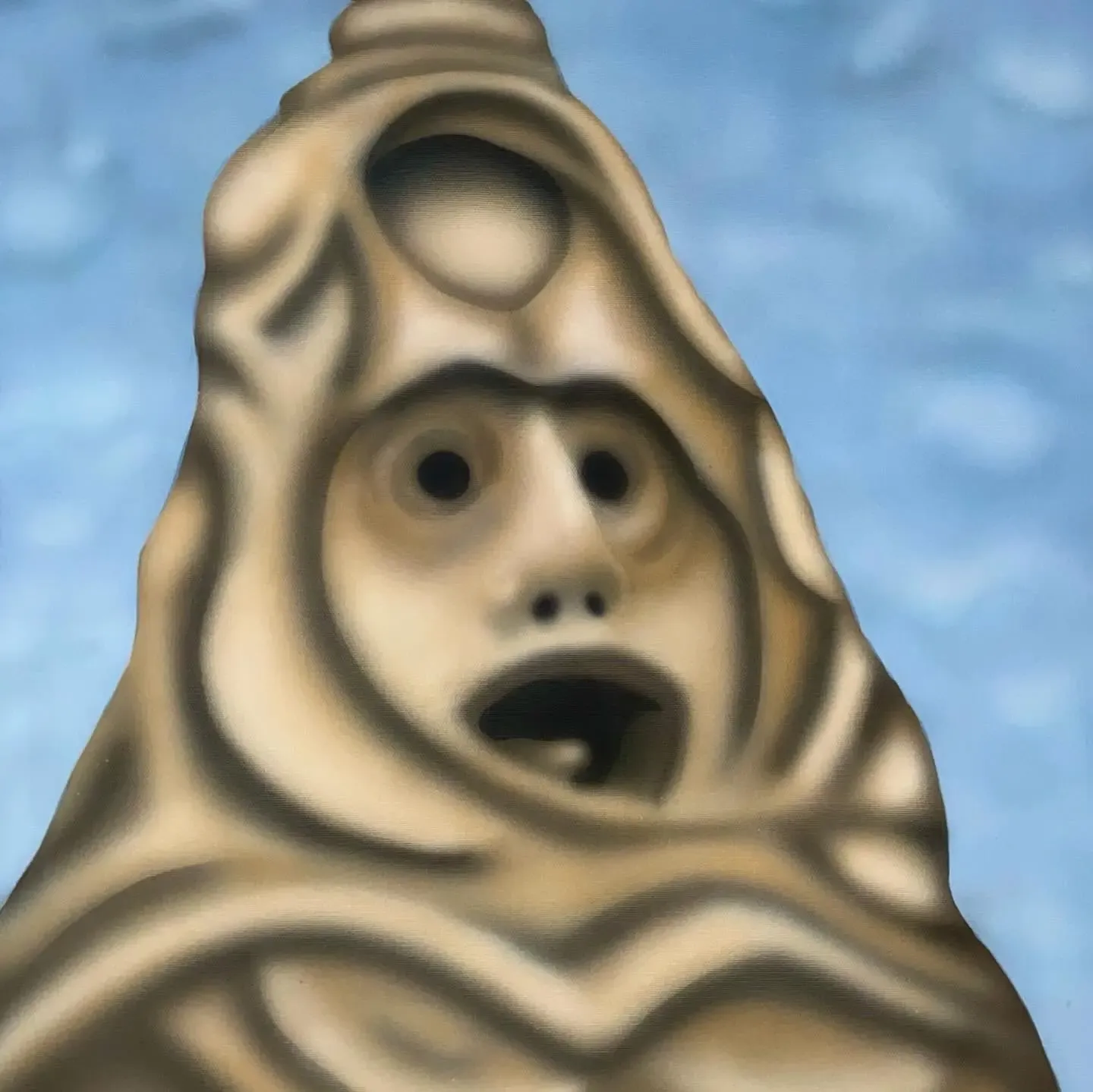
Creating spaces is like passing through a rabbit hole to another dimension, emerging from a cave, or seeping through cracks – these are the depictions I use.
Even though these spaces communicate with each other, I generally create them separately using the drop shadow trick.
I love drop shadow. Really. Although I love painting with a brush, I use an airbrush just to create that sharp black shadow effect.
Can you share your residency experiences and how this residency affected your art? Which environmental and cultural features of Cappadocia inspired your recent works?
This residency was truly “meaningful” for me because, as I mentioned in the first question, I had the opportunity to go back to the surreal town where I spent my early years at the age of 30 with a residency program.
For someone who draws all their inspiration from their childhood, staying and painting in the place where I was born was magnificent.
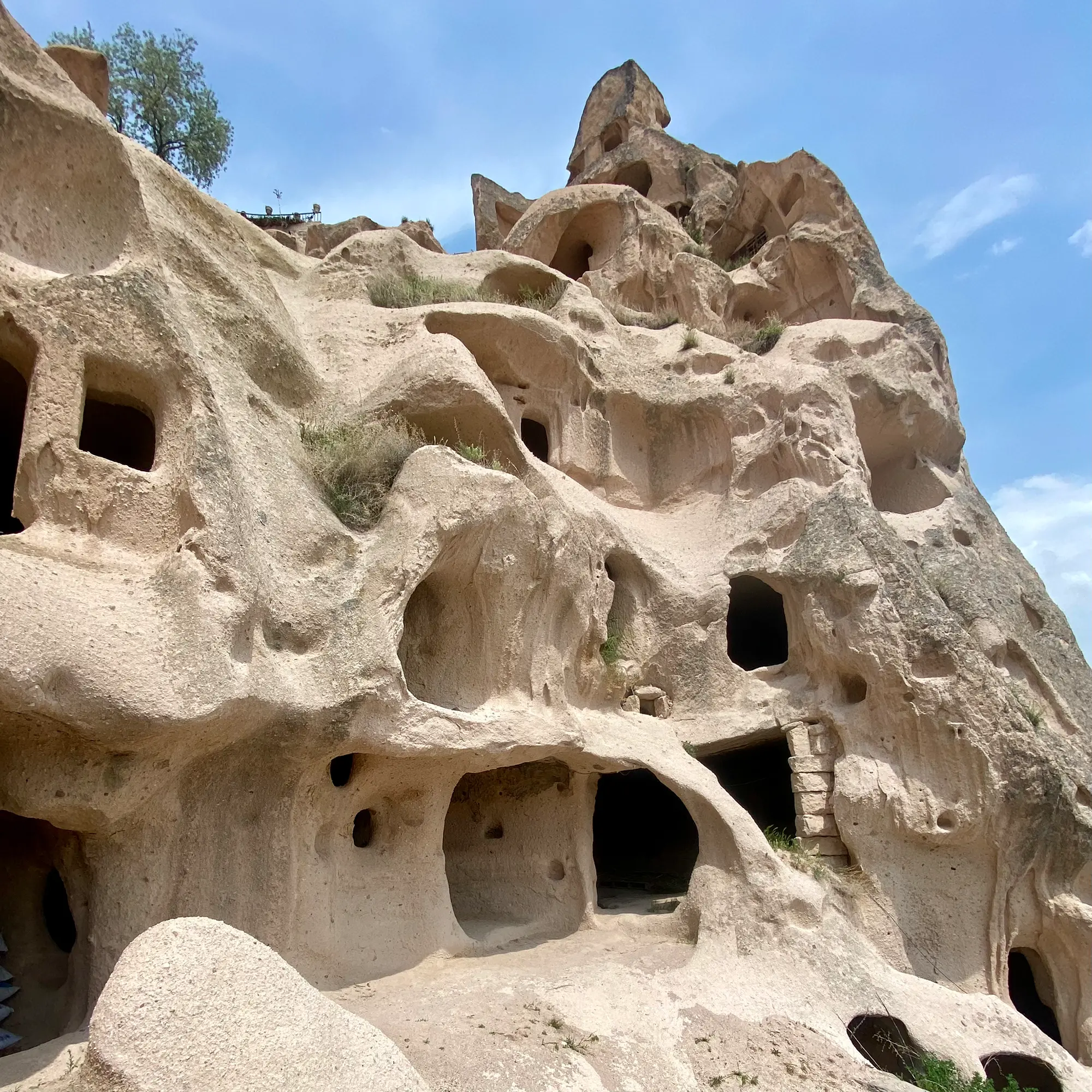
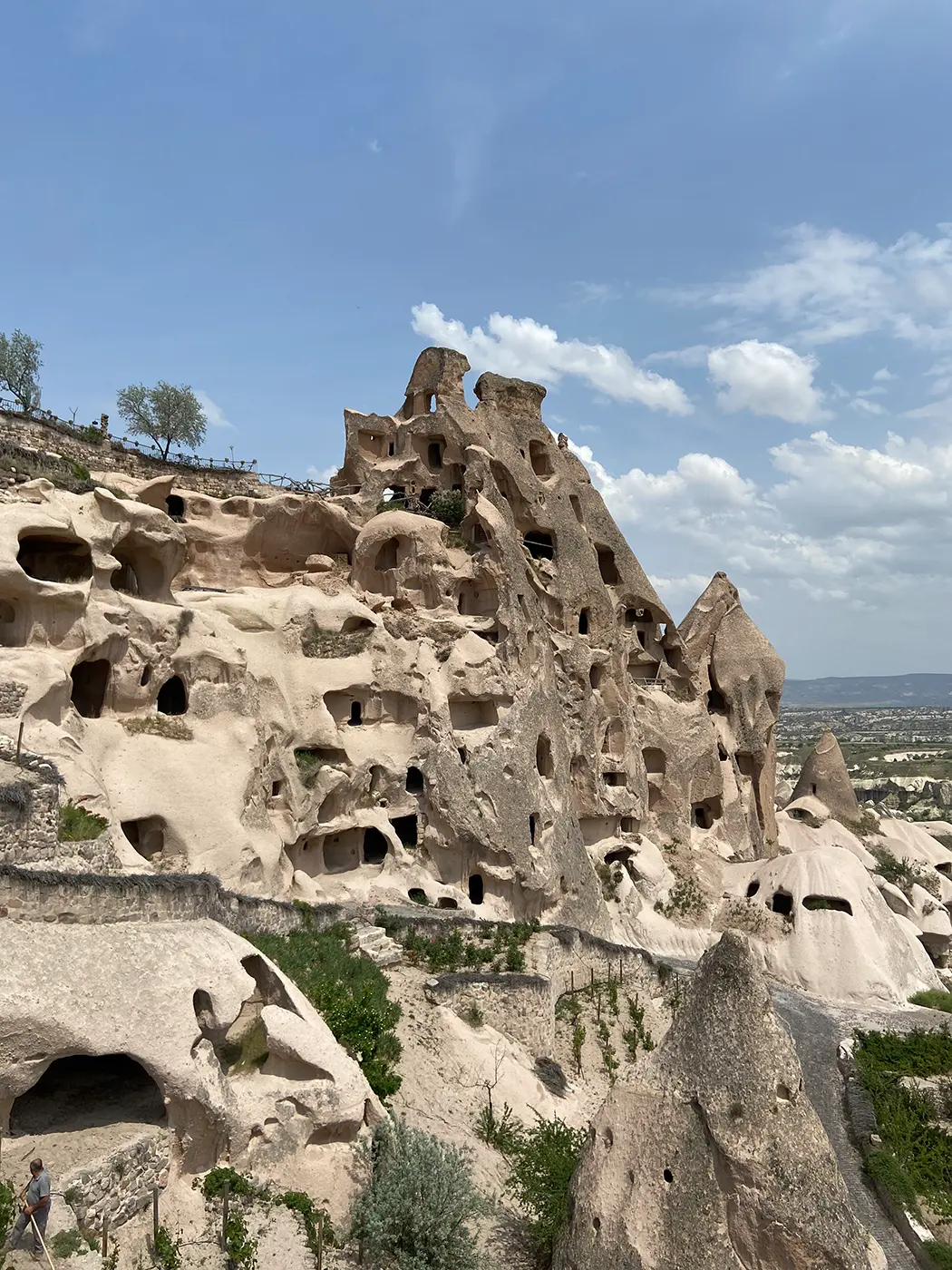
Discover Cappadocia, Turkey with Selver Yıldırım. The intricate rock formations and ancient cave dwellings serve as a rich source of inspiration for her artistic creations: the stunning rock formations and ancient cave dwellings of Cappadocia, Turkey. The left photo captures a close-up view of the weathered rock surface, riddled with windows and entrances carved into the stone. The right photo offers a wider perspective of the same formations, highlighting their architectural complexity and the natural beauty of the surrounding landscape. | Image Courtesy by the Artist
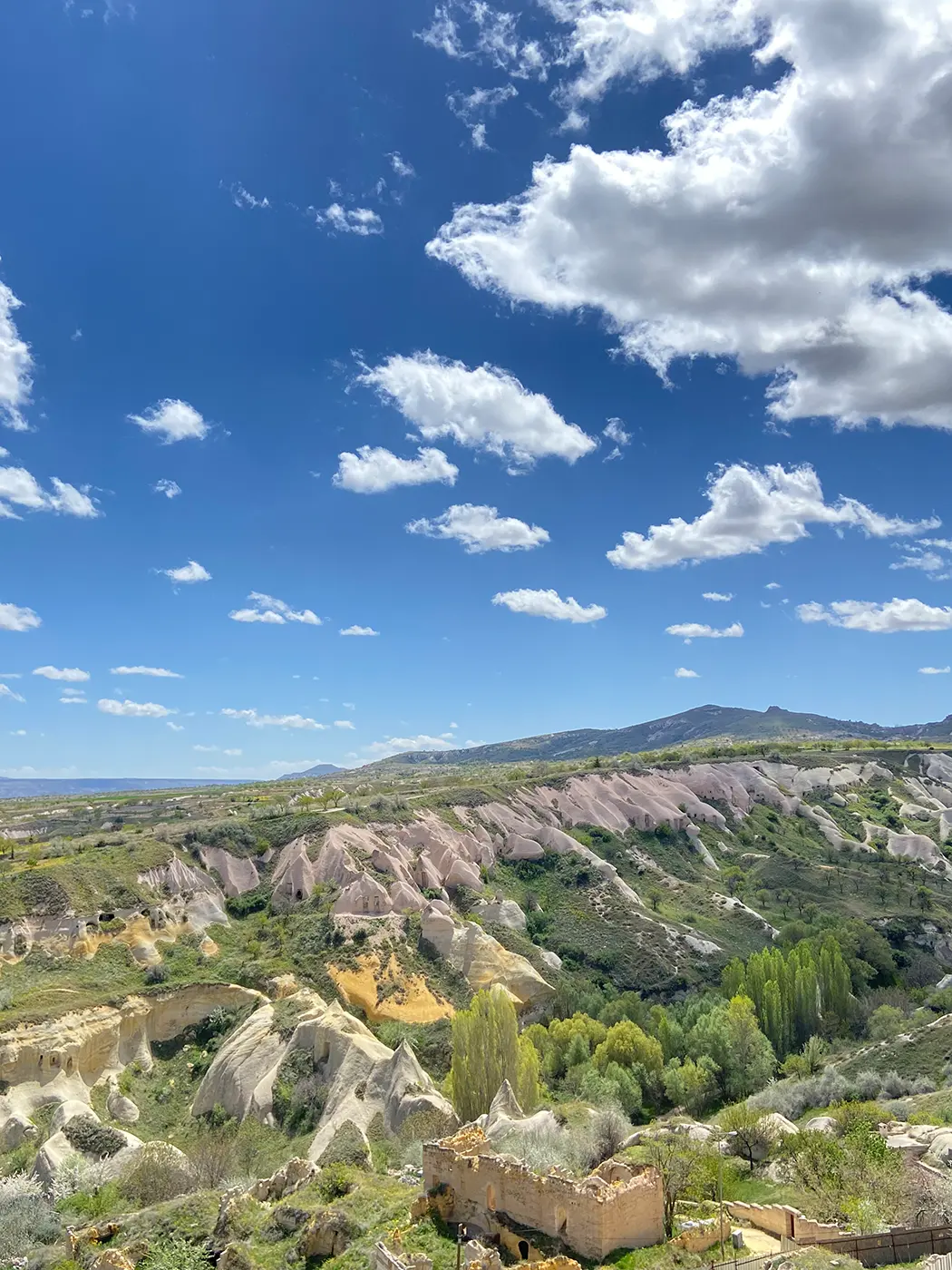
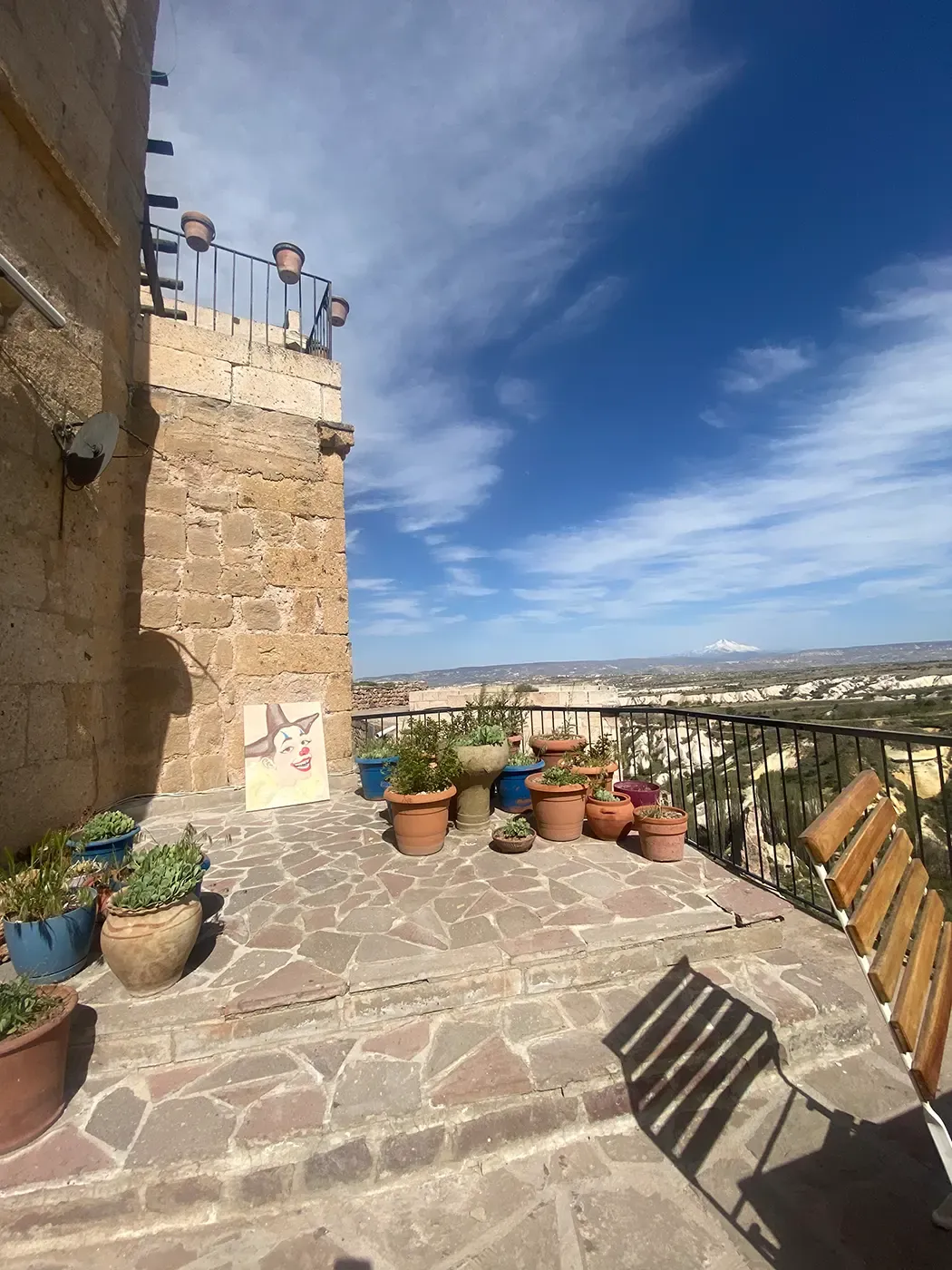
Visit Cappadocia, Turkey with Selver Yıldırım. The breathtaking landscapes and serene settings provide endless inspiration for her artistic endeavors. | Image Courtesy by the Artist
Moreover, the Arc Residency took care of me like a baby there.
In the paintings I created, fairy chimneys and caves became the focal points, and instead of my usual sharp colors, I used the town’s low-saturation serene colors.
I think the two best paintings I made in the past year emerged from this residency.
**Since 2013, you have participated in many art projects and exhibitions. Which ones have been the most memorable or impactful for you?**
Definitely my solo exhibition "0,9999…" at YaYa in December 2022. Exhibiting in YaYa, a 5-square meter showcase in a passage, was great for someone like me who experiences white cube anxiety.
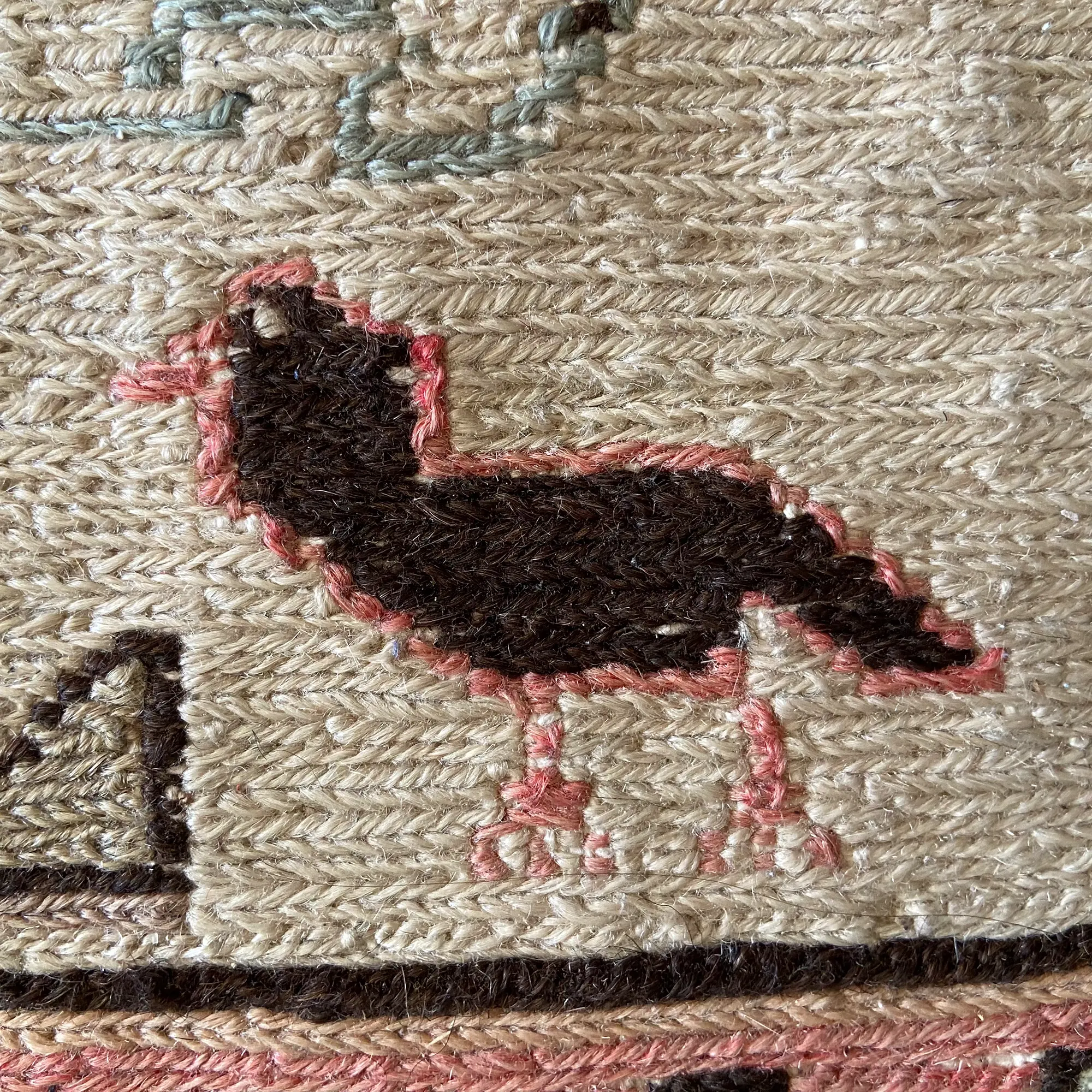
The most important aspect was the meaning I attributed to this exhibition.
I can summarize the exhibition's theme as "crossing a threshold, transitioning from 0 to 1, the cracking of an egg, a goodbye also being a hello." I knew I was making a closure, and that’s exactly what happened.

Selber Yildirim Exhibition Highlight on Instagram
With a poem, a sculpture, and three paintings, I bid farewell to the old Selver.
How do you approach conceptualizing and implementing a solo exhibition differently from participating in a group exhibition?
Conceptualizing anything is a pleasure for me.
When I immerse myself in the space for solo exhibitions, converse with the works, support them with installation, and create a complete narrative, I can establish a much more direct and satisfying communication with the viewer.
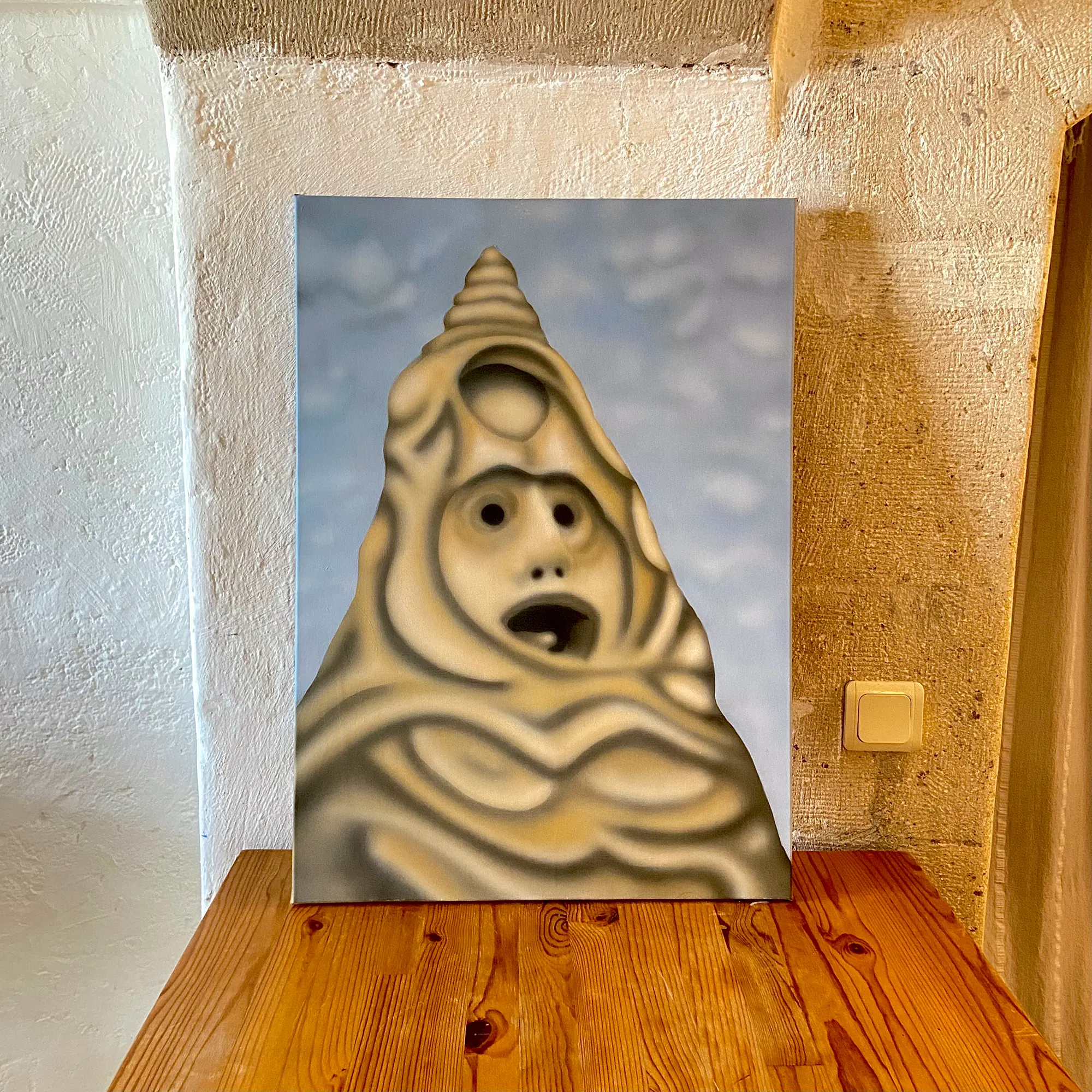
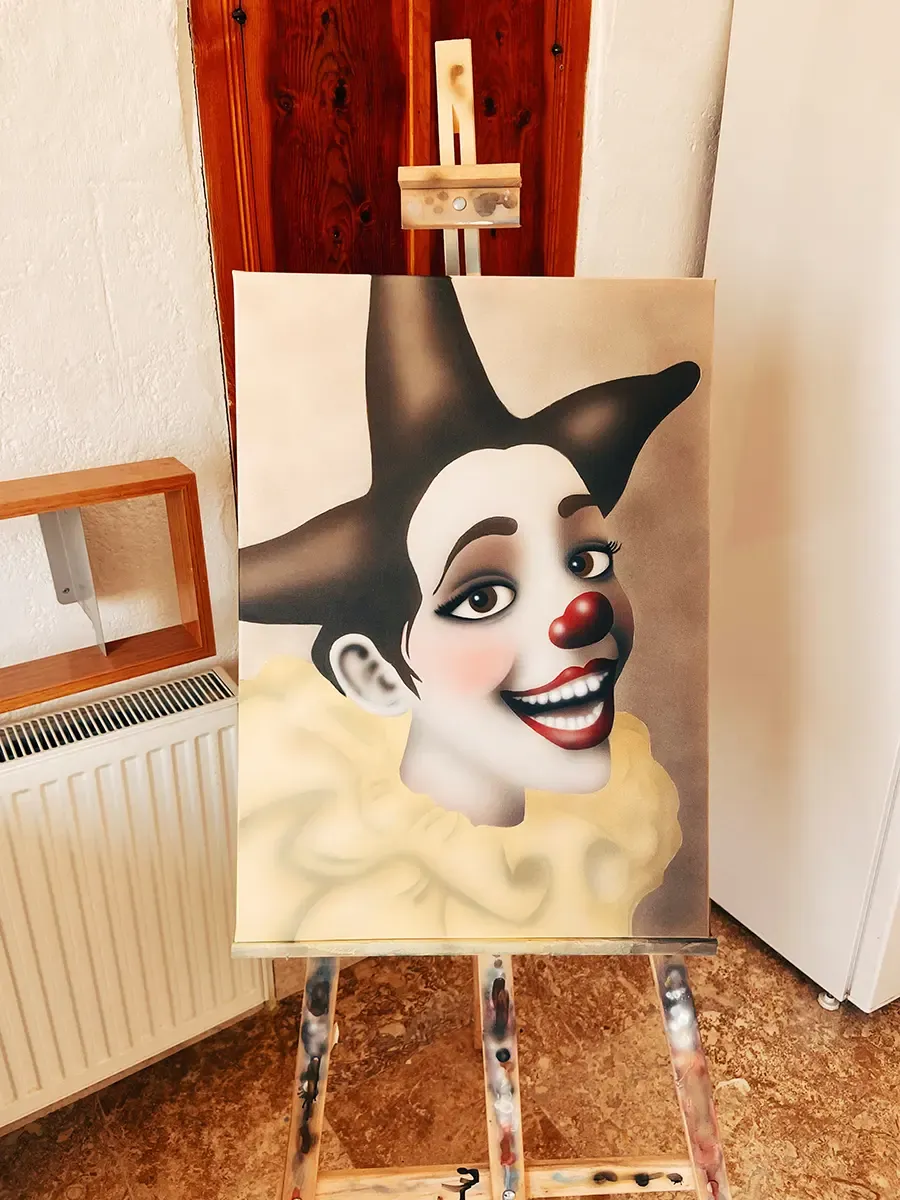
Selver Yıldırım: Artwork from Her Artist Residency in Cappadocia, Turkey. These pieces reflect her imaginative approach and the inspiration drawn from her unique surroundings.
However, I know that what visibly develops my art and broadens my vision is producing and collaborating with other artists.
Therefore, every duo or group exhibition process feels like a good lesson to me.
**What draws you to these themes, and how do you balance a pessimistic outlook with playful and ironic elements? Can you give an example of a work that reflects this contradiction?**
Frankly, I wouldn't call myself a pessimist. "Pessimism in theory, optimism in practice" is how I live. We know resources are running out, and I'm sure we're living in the end times.
Nevertheless, while this awareness of being in the apocalypse makes me theoretically pessimistic and depressive, it has brought me closer to absurdity and made me an absurdist in my art.
Although I am a millennial, I exhibit more of Gen Z's "Fuck it, we ball" attitude.
If I were to give an example from my works: I would show the video I made for a VR exhibition at the Pera Museum
.
What new directions or projects are you exploring in your current work? Are there any upcoming exhibitions or collaborations you're particularly excited about?
Yes, there are. Even if there weren’t, there’s always a "project" I make up.
First, I will have a solo exhibition at Ambidexter Gallery this year.

Then I will release a series of ceramics and have an exhibition in Berlin in May 2025. Busy but fun days await me.
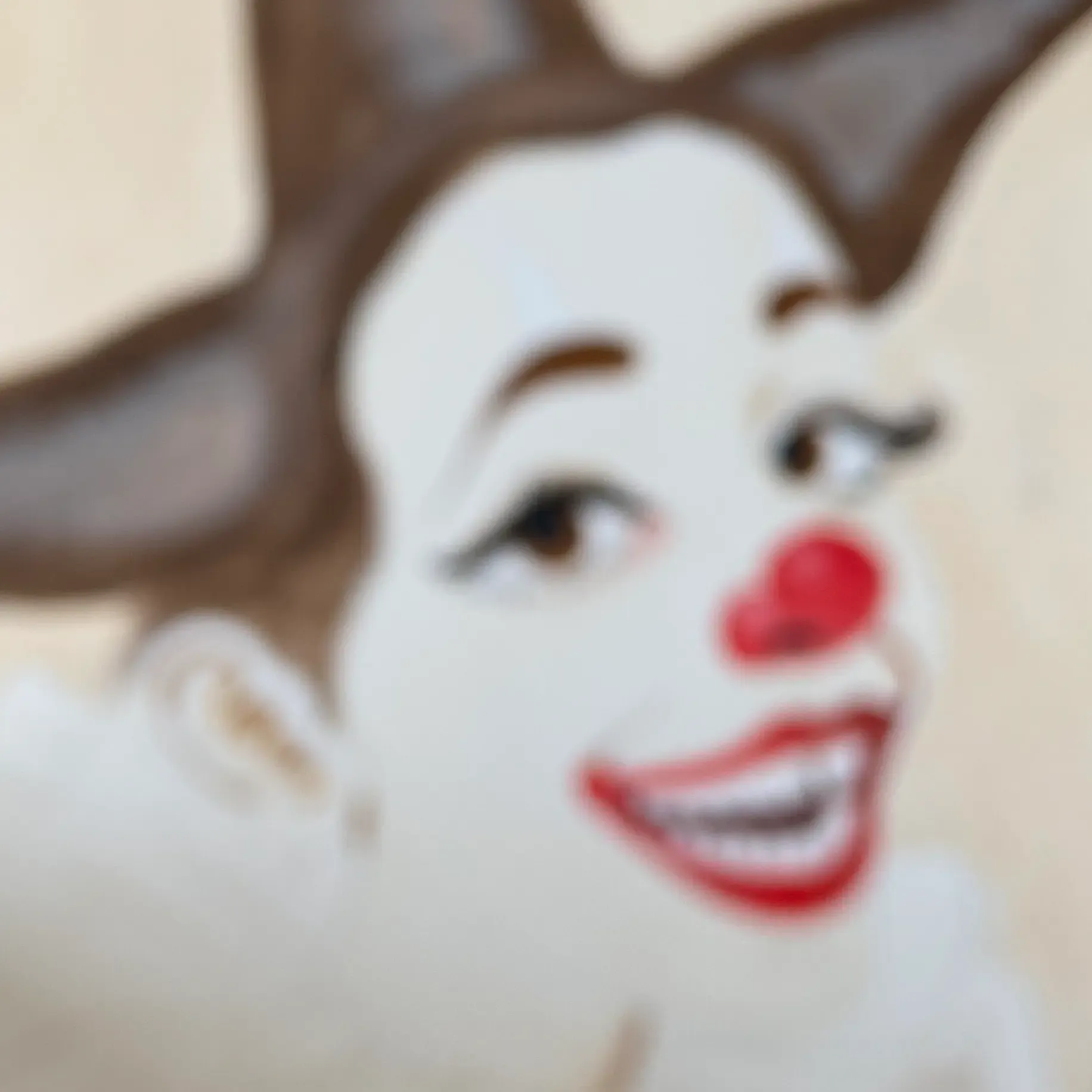
I am a Sisyphus who pushes the rock with a smile.
Thank you Selver for the great insights, it was a pleasure!
To dive deeper into her Art Practice, upcoming projects and new works of art follow Selver Yildirim on Instagram.
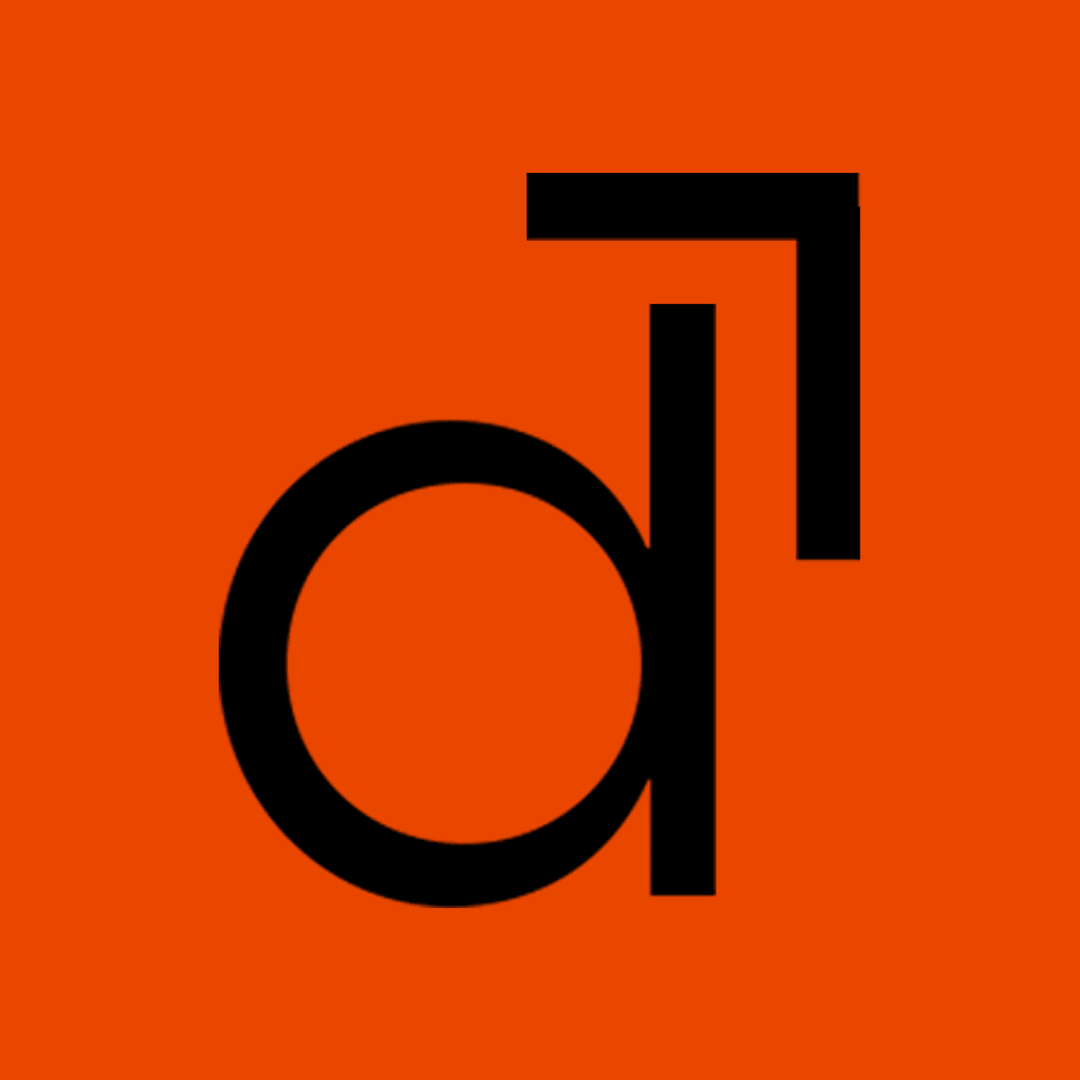
Online Store with works by Selver Yildirim



